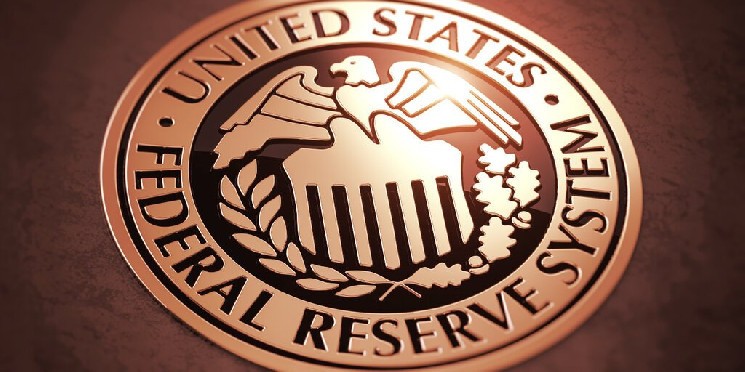Crypto Market Dips Ahead of Upcoming Fed Meeting

The price of Bitcoin, Ethereum, and other major cryptocurrencies slumped on Monday as the Federal Reserve is expected to increase its benchmark interest rate by 0.75%, the largest hike in nearly three decades.
At the time of writing, Bitcoin slid to a weekly low of about $21,935, down 2.8% over the past 24 hours, with Ethereum, the market’s second-largest cryptocurrency, shedding nearly 5% for the day to the current value of $1,528.
Among the ten largest crypto assets, Cardano is the heaviest hit with a drop of almost 7% over the day, followed by Solana (-4.35%), Dogecoin (-4.4%), and XRP (-4.15%).
The combined market capitalization of all cryptocurrencies has meanwhile dropped from $1.08 trillion last Wednesday to $1 trillion by press time, according to data provided by CoinMarketCap.
The latest price action comes ahead of the two-day long Federal Reserve meeting kicking off on Tuesday, which is expected to be wrapped up with the U.S. central bank raising interest rates by another 75 basis points.
Fed officials have already upped benchmark short-term borrowing rates by 1.5% this year, including a 75 basis point increase in June—the largest such increase in nearly three decades.
Bitcoin Bounces as Fed Drops Biggest Interest Rate Hike Since 1994
Interest rates and crypto
The move, which the Fed considers its main weapon to curb growing inflation, will see the interest rate—the rate banks charge each other for overnight loans—increase to a target range of 2.25% to 2.50%, meaning that pandemic-era support for the U.S. economy is effectively coming to an end.
When the federal funds rate goes up, this impacts the entire economy: adjustable-rate mortgages, home equity lines of credit, credit cards, student debt, and savings deposits, and other loans are becoming more expensive.
Bitcoin Slips Below $23,000 As Eurozone Moves to Curb Inflation with Interest Rate Hike
The idea is that less accessible borrowing will dampen consumer demand, thus bringing inflation down.
Interestingly, though, U.S. inflation has actually accelerated since the Fed began raising rates in March—with surging prices for gas, food, and rent catapulting the figure to a fresh four-decade high of 9.1%.
Interest rate hikes could also play out on stocks, cryptocurrencies, and other risky investments, while bringing risks of a decrease in capital inflows and, ultimately, a decline in economic growth.
The expected increase of interest rates in the U.S. also follows a similar move by the European Central Bank last Thursday when the benchmark interest rate in the Eurozone was upped by 0.5%.
The views and opinions expressed by the author are for informational purposes only and do not constitute financial, investment, or other advice.






 Bitcoin
Bitcoin  Ethereum
Ethereum  Tether
Tether  USDC
USDC  TRON
TRON  Dogecoin
Dogecoin  Cardano
Cardano  Bitcoin Cash
Bitcoin Cash  Chainlink
Chainlink  LEO Token
LEO Token  Zcash
Zcash  Monero
Monero  Stellar
Stellar  Litecoin
Litecoin  Hedera
Hedera  Dai
Dai  Cronos
Cronos  OKB
OKB  Tether Gold
Tether Gold  Ethereum Classic
Ethereum Classic  KuCoin
KuCoin  Gate
Gate  Algorand
Algorand  Cosmos Hub
Cosmos Hub  VeChain
VeChain  Tezos
Tezos  Dash
Dash  Stacks
Stacks  TrueUSD
TrueUSD  IOTA
IOTA  Basic Attention
Basic Attention  Decred
Decred  Theta Network
Theta Network  NEO
NEO  Synthetix
Synthetix  Qtum
Qtum  Ravencoin
Ravencoin  0x Protocol
0x Protocol  DigiByte
DigiByte  Zilliqa
Zilliqa  Nano
Nano  Holo
Holo  Siacoin
Siacoin  Numeraire
Numeraire  Waves
Waves  Ontology
Ontology  Enjin Coin
Enjin Coin  Status
Status  BUSD
BUSD  Hive
Hive  Pax Dollar
Pax Dollar  Lisk
Lisk  Steem
Steem  Huobi
Huobi  OMG Network
OMG Network  NEM
NEM  Bitcoin Gold
Bitcoin Gold  Ren
Ren  Augur
Augur